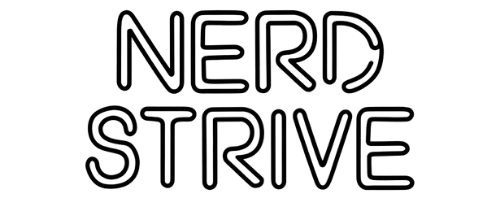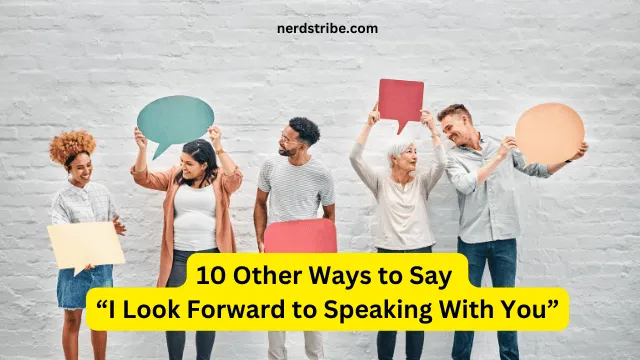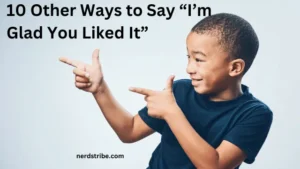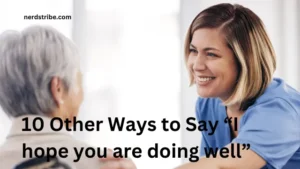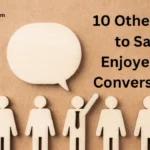In both professional and personal conversations, the way we express anticipation can leave a lasting impression. Saying “I look forward to speaking with you” is a polite and common way to convey eagerness, but it can feel somewhat repetitive or impersonal when used frequently.
In an age of digital communication, where emails, texts, and messages often blur together, finding fresh and engaging ways to express your enthusiasm for an upcoming conversation can help you stand out. This is why diversifying the way you express anticipation is not only helpful but essential for maintaining meaningful connections.
Words are more than just tools for communication—they’re a way to show your personality, your level of interest, and your respect for the recipient. Whether you’re reaching out to a colleague, client, or even a friend, a creative alternative to “I look forward to speaking with you” can demonstrate that you’re not just going through the motions, but that you truly care about the upcoming exchange. It’s about moving beyond the basics and choosing phrases that are genuine and dynamic.
In this post, we’ll explore 10 different ways to say “I look forward to speaking with you” that can add personality, energy, and professionalism to your communication. These alternatives will help you express your excitement, anticipation, and respect, while keeping things fresh and authentic. So, let’s dive in and find the right phrase that suits your next conversation!

Contents
- 1 1. I’m Eager to Chat
- 2 2. Excited to Connect
- 3 3. Can’t Wait to Talk
- 4 4. I’m Looking Forward to Our Discussion
- 5 5. I’m Keen to Speak With You
- 6 6. Looking Forward to Our Conversation
- 7 7. I’m Anticipating Our Chat
- 8 8. I’m Eager to Hear Your Thoughts
- 9 9. I’m Excited for Our Meeting
- 10 10. I Can’t Wait to Hear From You
- 11 Conclusion
- 12 FAQs
- 12.1 Why should I avoid saying “I look forward to speaking with you” all the time?
- 12.2 Can I use these alternatives in formal emails?
- 12.3 Are these alternatives suitable for casual conversations?
- 12.4 How do I choose which alternative to use?
- 12.5 Can I use these alternatives for one-on-one conversations?
- 12.6 How can I make my anticipation sound more genuine?
1. I’m Eager to Chat
This phrase conveys enthusiasm and shows you’re excited about the upcoming conversation. It’s informal but still professional, making it ideal for casual meetings or initial introductions.
- Example: “I’m eager to chat about your ideas and hear your thoughts!”
2. Excited to Connect
If you’re looking for a warmer, more personable way to express anticipation, “excited to connect” works well. It’s especially fitting for networking situations or informal business chats.
- Example: “Excited to connect with you soon to discuss the project details!”
3. Can’t Wait to Talk
A slightly more casual alternative, “can’t wait to talk” communicates enthusiasm and eagerness in a friendly, less formal tone. It’s perfect for informal exchanges with friends or coworkers.
- Example: “Can’t wait to talk about the new ideas you’ve been working on!”
4. I’m Looking Forward to Our Discussion
This phrase is a bit more formal and can be used in professional settings. It focuses on the quality of the conversation, which is particularly useful when discussing business topics or more serious matters.
- Example: “I’m looking forward to our discussion on the new marketing strategy.”
5. I’m Keen to Speak With You
For a more refined touch, “keen to speak with you” conveys eagerness while still maintaining a sense of professionalism. It’s especially useful in formal emails or business communication.
- Example: “I’m keen to speak with you about the upcoming partnership opportunity.”
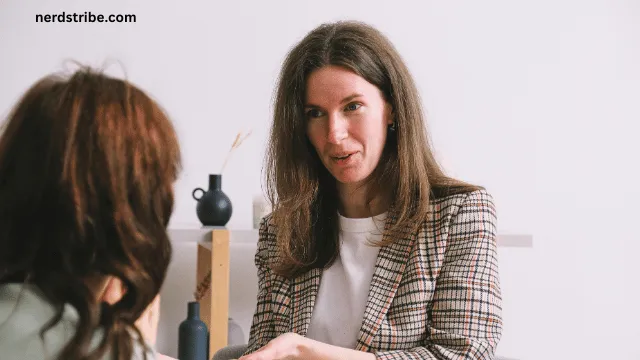
6. Looking Forward to Our Conversation
This is an excellent alternative when you want to keep things simple, but still express enthusiasm. It’s effective in both personal and professional settings.
- Example: “Looking forward to our conversation about the new design ideas.”
7. I’m Anticipating Our Chat
“I’m anticipating our chat” conveys both excitement and expectation, giving the reader a sense that you’re looking forward to something important. It works in both casual and formal emails.
- Example: “I’m anticipating our chat and the chance to brainstorm some solutions.”
8. I’m Eager to Hear Your Thoughts
This is a great way to show you’re interested in the other person’s opinions or ideas. It’s perfect for collaborative discussions where the other person’s input is valuable.
- Example: “I’m eager to hear your thoughts on the proposal and discuss next steps.”
9. I’m Excited for Our Meeting
Perfect for professional settings, “I’m excited for our meeting” expresses a positive attitude without being overly formal. It works well for team meetings, client calls, or project updates.
- Example: “I’m excited for our meeting tomorrow. We’ve got a lot to cover!”
10. I Can’t Wait to Hear From You
If you’re anticipating a one-on-one conversation, this phrase works wonderfully to convey eagerness while highlighting the importance of the exchange.
- Example: “I can’t wait to hear from you about the potential collaboration.”
Conclusion
Switching up the way you express anticipation for a conversation can make a big difference in the tone of your emails or messages. By using alternatives like “I’m eager to chat” or “Excited to connect,” you’re not just conveying your eagerness but also making your communication sound more dynamic, personal, and engaging.
Whether you’re connecting with a colleague, client, or friend, these phrases can help make your messages feel more meaningful and impactful. It’s important to remember that your communication reflects your personality and your respect for the other person.
By choosing the right words, you can make even the simplest interactions feel more thoughtful and genuine. So, next time you’re about to say, “I look forward to speaking with you,” try one of these alternatives and see how they enhance your connection.
FAQs
Why should I avoid saying “I look forward to speaking with you” all the time?
Overusing the same phrase can make your communication feel repetitive and robotic. Using different alternatives adds variety and keeps your conversations fresh and engaging.
Can I use these alternatives in formal emails?
Yes, many of the alternatives, such as “I’m looking forward to our discussion” or “I’m keen to speak with you,” are perfectly suitable for formal or professional emails.
Are these alternatives suitable for casual conversations?
Absolutely! Phrases like “I’m excited to connect” or “Can’t wait to talk” are ideal for more casual or informal conversations, both in professional and personal contexts.
How do I choose which alternative to use?
Consider the level of formality, the relationship you have with the recipient, and the context of the conversation. For a business meeting, a more formal alternative like “I’m looking forward to our discussion” may be appropriate, while a casual conversation might call for “Can’t wait to talk.”
Can I use these alternatives for one-on-one conversations?
Yes! Alternatives like “I’m eager to hear your thoughts” or “I can’t wait to hear from you” are excellent for one-on-one conversations, especially when you want to emphasize the importance of the interaction.
How can I make my anticipation sound more genuine?
By choosing words that feel natural and authentic to the situation, like “I’m excited for our meeting” or “I’m looking forward to our conversation,” you can convey a sense of genuine interest and excitement.
